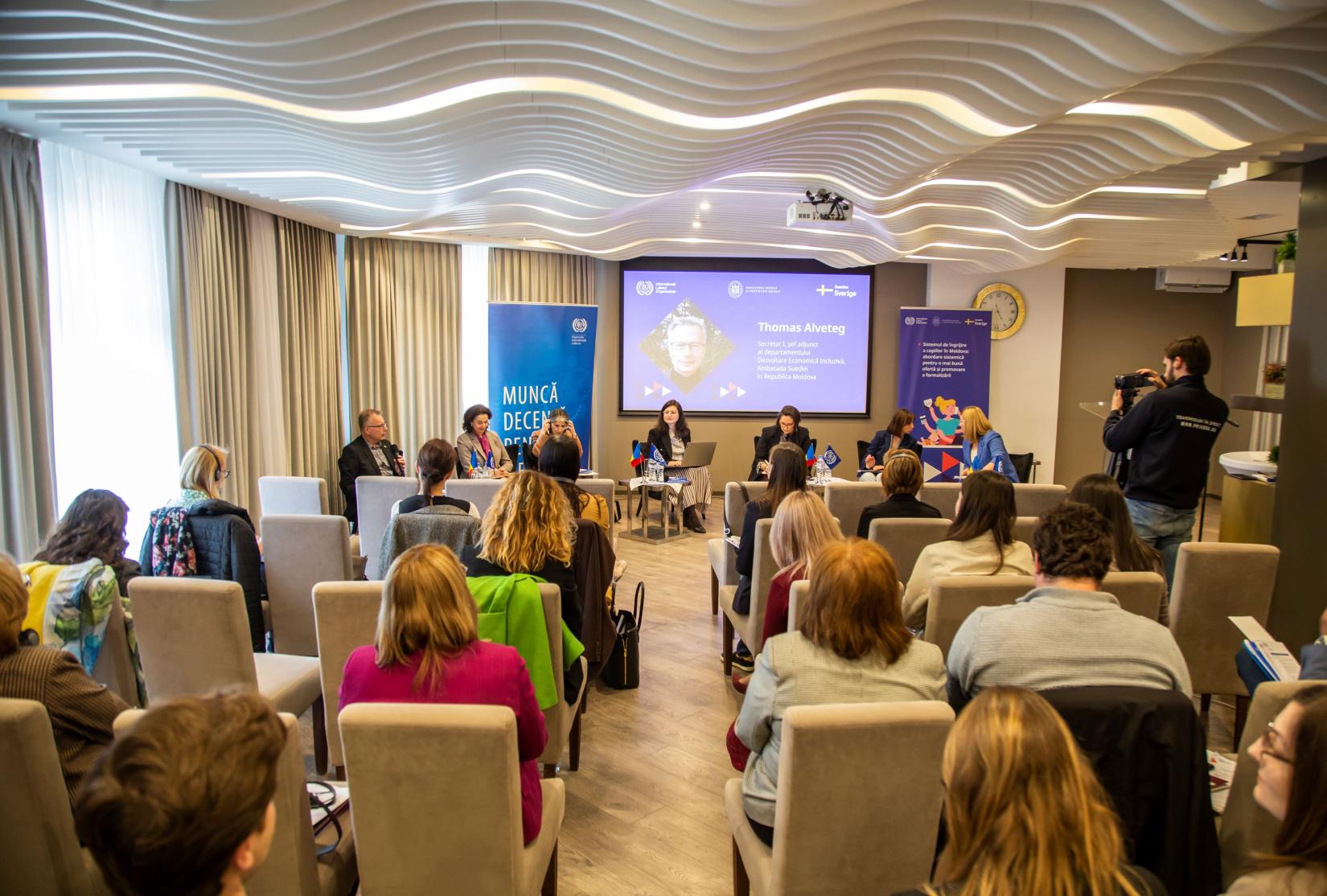ILO supports the improvement of childcare services in the Republic of Moldova
28 April 2023
- The International Labor Organization (ILO) has launched the ,,Childcare in Moldova: A systemic approach to improve provision” project, which aims to improve the childcare system in Moldova. The need for alternative childcare services arises from the fact that women are overwhelmingly responsible for caregiving work, performing on average three times more unpaid caregiving work than men.

”The project is designed to support the Country Program for Decent Work 2021-2024, with the aim of creating better employment opportunities, decent working conditions and a sustained and consolidated social dialogue. The availability of alternative childcare services could encourage the presence of women and men in the labor market, as well as create jobs. In this project, ILO will ensure that those involved in childcare services benefit from fair employment relationships, pilot certain alternative childcare service models, and seek to stimulate cooperation between employees, employers, and the representatives of employers' and workers' organizations”, stated Ala Lipciu, National Coordinator, ILO Moldova.
The parliament is also working to increase the availability of childcare services, as there is a clear demand for them in Moldova, said MP Marina Morozova, who was present at the event. ,,The government launched many legislative initiatives regarding childcare services, such as the flexible work program or the daycare fund. There are also other projects to help parents return more easily to the workforce.”
In turn, Felicia Bechtold, the State Secretary of the Ministry of Labor and Social Protection, reviewed the three major types of intervention provided in the National Program for Childcare Services 2023-2026. "Only 15% of children aged 1-3 are enrolled in the public childcare system. Within the National Program, we aim to expand public daycare services, create three types of alternative childcare services, and expand private daycare centers."
The project is also supported by Sweden, which has one of the best models of childcare policies. Thomas Alveteg, Secretary I at the Swedish Embassy in the Republic of Moldova, emphasized the importance of childcare services, as well as Sweden's priorities in our country. "It is very important for mothers and fathers to be able to be both parents and develop their professional careers. However, high-quality and affordable childcare services are necessary for this. Similarly, social inclusion of children is essential, as they need to interact with other children. Therefore, this project is very necessary in the Republic of Moldova, and Sweden supports inclusive economic development in the Republic of Moldova. Through this inclusion, we want all sectors to benefit from support, but gender equality must be part of all projects we create so that young mothers have the opportunity to be present in the labor market."
With the presence of young children in a household, the amount of time women dedicate to unpaid caregiving significantly increases, and caregiving responsibilities are a constraint for women's participation in the labor market. ”It is necessary to intervene at the macro level to understand the barriers that women face. Women entrepreneurs and male entrepreneurs face different, gender-specific barriers. We must ensure that the services provided meet the needs of women entrepreneurs so that they can thrive. Childcare can be a barrier because it influences the domain in which women decide to launch their businesses,” said Virginia Rose Losada, Global Coordinator, Women's Entrepreneurship Development, Enterprise Department, ILO.
One of ILO's objectives is to develop labor standards. Since the agenda for developing and implementing care services is complex and involves multiple entities, models have been established to help calculate both paid and unpaid work.
Maria José Chamorro, Specialist in Formalization and Gender Equality, ILO, presented the 5R System, developed by ILO for this purpose. ”ILO advocates for the recognition, reduction, and redistribution of unpaid care work, fair compensation and remuneration in the care sector, as well as ensuring worker representation in the care sector, social dialogue, and collective bargaining.”
An analysis of the market system on childcare system was presented at the event, which was discussed and validated with representatives of central and local public authorities, private sector representatives, as well as employers' and workers' organizations. Participants in the discussions made a series of recommendations that will be included in the report to help authorities improve alternative childcare services.
Statistics
In 2020, 53.6% of the population of the Republic of Moldova, mainly women aged 25-34, were inactive due to family responsibilities.
Family responsibilities are the main cause of economic inactivity for every second woman aged 25-54 (55.2% of the total inactive women aged 25-54).
Households with at least three children have a poverty rate of 42.1% compared to 20.9% for households with only one child.
The share of children aged up to 3 years enrolled in pre-school education is 15%.
Contacts:
Nelea Rusu, National Project Coordinator, ILO, M: +373 68 00 46 26, E: rusu@ilo.org
Diana Lungu, Communication Consultant, ILO, M: +373 68 15 66 61, E: lungudia@gmail.com




